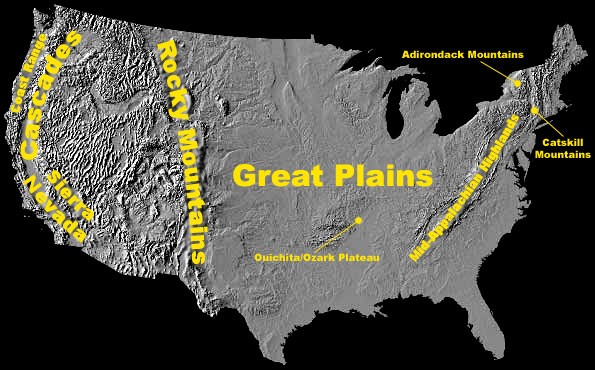Effects of Acid Rain on Forests
Acid rain does not usually kill trees directly. Instead, it is more likely to weaken trees by:
- damaging their leaves
- limiting the nutrients available to them
- exposing them to toxic substances slowly released from the soil
Quite often, injury or death of trees is a result of these effects of acid rain in combination with one or more additional threats. Click on the hot spots in the image below to see the effects of acid rain on the forest:
Effects of Acid Rain on Aquatic Life
Acid rain causes acidification of lakes and streams and contributes to damage of trees at high elevations (for example, red spruce trees above 2,000 feet) and many sensitive forest soils. Several regions in the U.S. were identified as containing many of the surface waters sensitive to acidification. They include the:
- Adirondacks and Catskill Mountains in New York State;
- Mid-Appalachian Highlands along the east coast;
- Upper Midwest;
- Mountainous areas of the Western United States.

Some types of plants and animals can handle acidic waters. Others, however, are acid-sensitive and will be lost as the pH declines. View the image of the fish, shellfish, and insects below to see what pH levels they can tolerate:
Bass - Acid tolerance of up to pH 5.5
Perch - Acid tolerance of up to pH 4.5
Frogs - Acid tolerance of up to pH 4.0
Salamander - Acid tolerance of up to pH 5.0
Clams - Acid tolerance of up to pH 6.0
Crayfish - Acid tolerance of up to pH 5.5
Snails - Acid tolerance of up to pH 6.0
Mayfly - Acid tolerance of up to pH 5.5